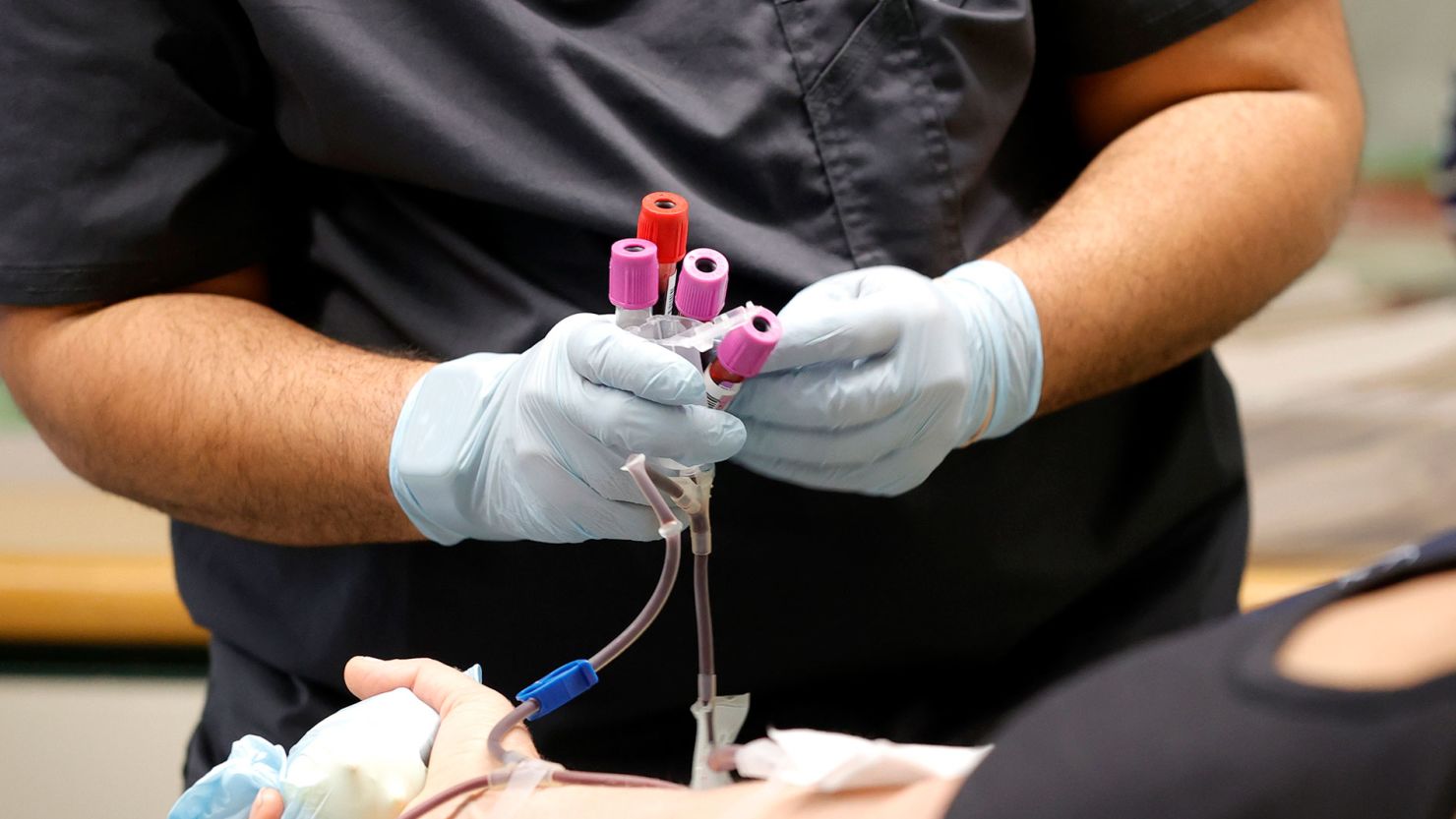Editor’s Note: Ushma Neill is vice president of scientific education and training at Memorial Sloan Kettering Cancer Center in New York City, and editor at large of the Journal of Clinical Investigation. Follow her @ushmaneill. Lala Tanmoy (Tom) Das is an MD-PhD student at Weill Cornell Medicine in New York City who has been barred from blood donation for being gay. Follow him @TanmoyDasLala. The opinions expressed in this commentary are solely those of the authors. View more opinion on CNN.
The American Red Cross, which supplies 40% of the nation’s blood, has announced that the nation is facing its worst blood shortage in more than a decade. According to a January 11 statement, the nonprofit has had less than a one-day supply of critical blood types in recent weeks. As a result, it has had to limit the distribution of blood product to hospitals. In some cases, up to a quarter of hospital blood needs are not being met, leaving many patients in limbo with life-saving transfusion needs.

Several compounding factors underlie this shortage: Pandemic-related lockdowns, drops in college and high school blood drives over the last two years, winter weather conditions and Covid-related staffing limitations have all led to the cancellation of blood drives.

However, a potential solution is readily available to help alleviate some of the current shortage: removing the archaic, discriminatory and unscientific US Food and Drug Administration restrictions underlying blood donation from men who have sex with men.
With the recognition in the early 1980s that HIV was primarily occurring in gay men and transmissible through blood products, blood safety officials took the step of excluding gay men from blood donation. And after a screening test was developed, the FDA started testing for HIV in the blood supply and imposed a lifetime ban on donations from gay and bisexual men.
Forty years ago, the safety precautions were merited: It took several months to know if an individual had contracted HIV after a sexual encounter. But this no longer remains the case, as newer laboratory assessments can very accurately detect the presence of HIV from 10 days to just over a month after transmission.
With the evolution of HIV-testing capabilities, deferral windows have been modified: The lifetime ban was shortened to a year of celibacy in 2015 and then reduced to three months in April 2020. But the current three-month celibacy requirement before donation is still unnecessary given our ability to ensure that a sample is HIV-free in a much shorter timeframe.
What’s more, the integrity of the blood supply is ensured based on the steps mandated before any biological product can be transferred to another human. The Red Cross notes that all donated blood is tested for infectious agents, including Trypanosoma cruzi (commonly known as Chagas disease), hepatitis B and C viruses, HIV, human T-lymphotropic virus (HTLV), West Nile virus, Zika virus, babesia and syphilis. With these kinds of precautions, other countries – such as Brazil, Argentina, Italy, Russia, South Africa, Spain and Hungary – that follow similar safety procedures have removed any deferral on donation from men who have sex with men. And with blood shortages percolating across the global ecosystem, as recently as this month, France’s Health Minister Olivier Veran announced, “We are ending an inequality that was no longer justified.” Beginning in March, gay and bisexual French men will no longer be restricted from blood donation.
In the US, there are reportedly over 7 million men who have sex with men – many of whom identify as gay or bisexual. And this is likely an underestimate, as same-sex activity is often underreported. An analysis by the Williams Institute, a public policy research institute based at the University of California, Los Angeles School of Law, suggests that lifting the blood donation ban could increase the total annual blood supply by 2% to 4%, translating to 345,400 to 615,300 pints of blood annually.
And to counter people who cite HIV’s “silent window” – the period between infection and markers of infection becoming detectable in tests – as the reason to perpetuate deferrals, France’s public health agency argued, “This [silent window] risk is currently estimated at one in 11.6 million donations, or one potentially HIV-infected donation every four years.”
The continuation of these donation deferrals for men who have sex with men not only limits the much-needed supply of blood donors, it perpetuates the stigma that associates primarily gay and bisexual men with HIV. In practice, the discrimination is all too obvious: A heterosexual man can have high-risk sex with females for years and, after a period of three months of celibacy or monogamous sex, donate blood. However, a gay man in a monogamous relationship who practices safe sex with his partner is barred from ever donating unless he observes celibacy for three months. This blatant double standard is the textbook definition of bigotry.
It is also shocking that despite decades of research on HIV prevention, FDA policy disclaimers on male same-sex contact have not incorporated the role of pre-exposure prophylaxis (PrEP) medications. In fact, there is unequivocal data showing that when taken consistently, PrEP is close to 100% effective in preventing HIV transmission by sex. And men who have sex with men continue to be the majority of PrEP users, warranting a shift in the dialogue on HIV and sexual contact.
Get our free weekly newsletter
Current strategies – or lack thereof – to mitigate this crisis seem short-sighted and reactionary. Instead, in the backdrop of modern testing methodologies and informed decisions made by other countries, we urge the FDA to abolish the deferral time for men who have sex with men; this is a view now shared by the Biden White House.
At a time when the nation is calling for unity and community, this policy rooted in bigotry is ripe for repeal. Excluding an entire group of people does not meet the needs of the US – not in a pandemic, and not in non-pandemic times either.





